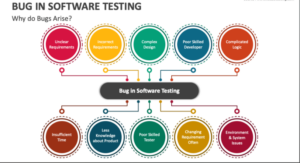Before you can become a Quality Assurance Analyst, it’s important to understand the educational requirements for the position. As you know today, a bachelor’s degree in a relevant field is the foundation that other certifications will build on to make you become an expert. In this article, we’ll be discussing the educational requirements needed to become a quality assurance and other important tips to know. Let’s get right into it.
Who is a Quality Assurance Analyst?
The software development process isn’t complete without a quality assurance analyst testing it. So, a quality assurance analyst is a professional that is knowledgeable about the software testing process and effectively carries this duty out to ensure the standards of the manufacturer are met. Even though software testing is an analyst’s major job, they also work in other industries.
The software testing process checks the totality of the application and ensures they’re free from bugs and other errors. Likewise, the testing process leads to testing the reactions of the software for the users before its final launching. Assurance analysts are also skilled in an effective documentation process to ensure the stages of testing are stored and understood for future references.
Educational Requirements of a Quality Assurance Analyst
Although anyone can cross to become a quality assurance analyst, most experts have a background degree in information services, Computer Science, and other similar fields. The main job requires a working knowledge of computer software, programming languages, and the use of automation tools (when required). So, you need to understand this before proceeding to the field.
On the other hand, there are tons of quality assurance online courses to choose from when switching to the field. With the good quality assurance classes, you’ll have all the necessary lessons on how to carry out testing processes and other important roles in your career.
In addition to these, you need to acquire the right certifications that’ll give you steady growth in your career path. There are lots of certification courses, but some of the top certifications include Certified Test Engineer (CSTE), Certified Associate in Software Testing (CAST), Certified Software Quality Analyst (CSQA), ISTQB (International Software Testing Qualifications Board), CMSQ (Certified Manager of Software Quality), etc.
Each of these mentioned certifications is recognized worldwide and very relevant to the field. However, you need to understand the requirements before enrolling for any. Guess what? You can get the information from your quality assurance classes.
Skills required for a Quality Assurance Analyst
- Communication skills
Aside from the hard skills you need as a quality assurance analyst, it is also important to gain the relevant soft skills for the job. One of these is effective communication skills. A quality assurance analyst isn’t a single professional on the job. Most times, you’ll be required to work with a team of other professionals across various departments including the developers, business analysts, IT managers, and others. It is quite important to develop your communication skills because this will help you relate better with others in the team.
- Collaborative skills
With your communication skills, you’ll be required to also improve your collaborative skills. It’s necessary to help relate better with others and reason their suggestions for a successful software development process. This may also become a determinant to acquiring a higher status on the job.
- Leadership Skills
A quality assurance analyst is also required to possess good leadership skills. During your time in the quality assurance online class, you’ll be required to showcase this amongst your peers either by heading the team or handling a major role in the process. Remember this won’t be successful without the first two listed above.
- Time Management
For a quality assurance analyst, little time cannot be wasted. Most times, your process will come with a very strict deadline that has to be met. This will keep you on your toes while trying to ensure the software passes the check and you meet the deadline. So, it’s important to practice as you continue with your beginner course.
- Problem-solving skills
The challenges and demands of software testing can be quite overwhelming. But when you have good problem-solving skills, this will be a lesser task.
Conclusion
It’s all done now. In this article, you have read about the necessary hard and soft skills required to become a quality assurance analyst. Now is the time for implementation. Good luck.






























